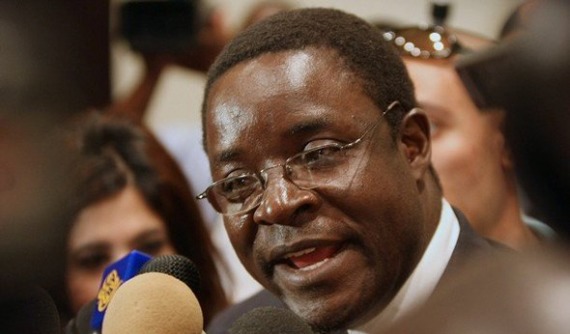
BY ALEX MAGAISA
The abduction and torture of Tawanda Muchehiwa last month is yet another case that illustrates the sadistic nature of the Emmerson Mnangagwa regime and the continuities from the Robert Mugabe era.
Muchehiwa is a 22-year-old journalism student at Midlands State University.
He is a nephew to Mduduzi Mathuthu, editor of Zimlive.com — a leading news website.
Mathuthu has been in hiding for over a month following the arrest of fellow journalist Hopewell Chin’ono who is still held at Chikurubi Maximum Security Prison.
The two journalists were at the forefront of exposing the corruption over the procurement of Covid-19 goods which implicates members of the Mnangagwa family.
A few things stand out from the Muchehiwa case.
First, Muchehiwa was abducted by state security agents who have obvious sympathies for Zanu PF.
- Chamisa under fire over US$120K donation
- Mavhunga puts DeMbare into Chibuku quarterfinals
- Pension funds bet on Cabora Bassa oilfields
- Councils defy govt fire tender directive
Keep Reading
The horrific account shows that Muchehiwa’s abductors were acting as a partisan unit in support of Zanu PF.
For a long time, the regime has rejected accusations of abductions and torture by its agents.
The Muchehiwa case debunks those denialist narratives.
There is CCTV footage of the whole episode during which Muchehiwa was abducted.
His account is detailed and impeccable.
One of the most troubling features is that the police seemed to have worked hand in hand with the rogue unit.
The brutality of Muchehiwa’s treatment is consistent with accounts of similar treatment given to other activists who have been abducted in the past.
The government has made no headway in previous abductions, citing lack of evidence.
It has denied that there were abductions.
The regime would have similarly dismissed Muchehiwa’s account.
But the system made gross errors in this case.
There is too much evidence. If ever Zanu PF’s allies abroad doubted claims of abductions, the Muchehiwa case is a classic example of the sadism at the heart of the Mnangagwa regime.
The second thing is that suspicions abound between factions within the regime.
According to Muchehiwa’s account, the abductors wanted to know whether his uncle Mathuthu was in communication with George Charamba, who is the deputy chief secretary in Mnangagwa’s office.
He is in charge of Mnangagwa’s communications, and is another of the relics from the Mugabe era.
Part of the reason why Mnangagwa never moved an inch from his old boss’s authoritarian style of leadership is that he retained the linchpins of Mugabe’s office, people like Charamba, Misheck Sibanda and Munyaradzi Kajese.
They represented continuity at a time when change was required.
Old habits die hard.
But why would Muchehiwa’s abductors inquire into the relationship between Mathuthu and Charamba?
It seems they don’t trust Charamba.
They probably suspect that Charamba was leaking information to Mathuthu.
It was Mathuthu’s website which first broke the story, now known as the Drax scandal, of the corruption surrounding the procurement of Covid-19 goods on April 21, 2020.
This is probably why Charamba has been aggressive, vile and insensitive in the wake of the Muchehiwa revelations.
Charamba posted some highly disagreeable tweets mocking the deceased Lavender Chiwaya, an MDC Alliance councillor whose lifeless body was dumped near his home in Hurungwe.
The opposition suspect that Chiwaya was murdered by state agents after an abduction.
Charamba is trying desperately to sound combative to his peers in the regime, who no longer trust him.
In Zanu PF, one’s loyalties are demonstrated by how vile you are towards the opposition and Charamba is trying too hard to repair his credentials.
The final thing arising from the Muchehiwa case is the perennial problem of infiltration and divide-and-rule within the opposition.
According to Muchehiwa’s account, which is corroborated by his cousins, who were arrested in the same incident that he was abducted, the state agents appear to have been led to him by an MDC Alliance official, one Tendai Masotsha.
It isn’t clear whether Masotsha acted voluntarily or was under duress, but it would be useful for her to give her side of the story.
As it is, there is a reasonable suspicion that she assisted the abductors.
She should certainly have more information on the abductors given that she brought them to Muchehiwa.
However, as Muchehiwa’s account also shows, it is not uncommon for state agents to use their captives to lead them to other targets in the opposition.
He recounts how they tried to use his phone to waylay other activists, including Thandekile Moyo, who initiated the “Zanu PF must go” hashtag and Samkeliso Tshuma.
Both were wise enough to avoid falling into the trap.
However, Muchehiwa’s friend, Collen Dhlamini, fell for it when he was baited with a WhatsApp message from his phone.
He was also given a severe beating.
In this circumstance, Dhlamini could have thought his friend had sold him out, but it had happened under duress.
This incident is a lesson to activists to be more circumspect during times of heightened crisis.
The system uses the people closest to you to draw you out of your safe space.
If the system does not use duress, it can bribe friends and other cadres to sell strategic information.
They will be promised freedom and protection in return for information.
Therefore, it is advisable to treat everyone, including those closest to you, with circumspection.
It’s not nice but that is life under an authoritarian regime: vigilance is key.
As for the MDC Alliance, the problem of infiltration has long been a concern.
With increasing levels of poverty and desperation in the country, opposition activists are financially vulnerable, which makes them easy prey for recruiters.
The party has to strengthen its systems and controls otherwise the several spies in its ranks will continue to undermine its efforts and expose fellow cadres.
l This is an extract from Alex Magaisa’s latest blog post on the Big Saturday Read.











